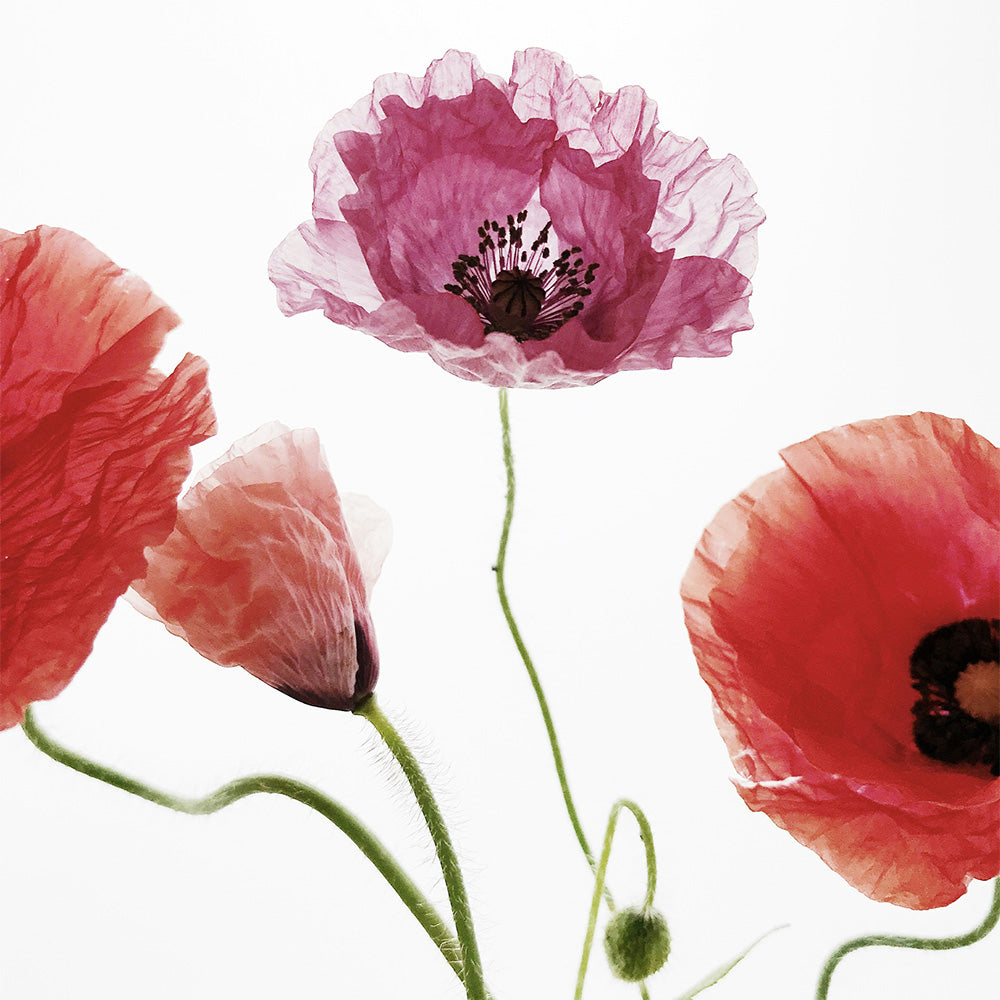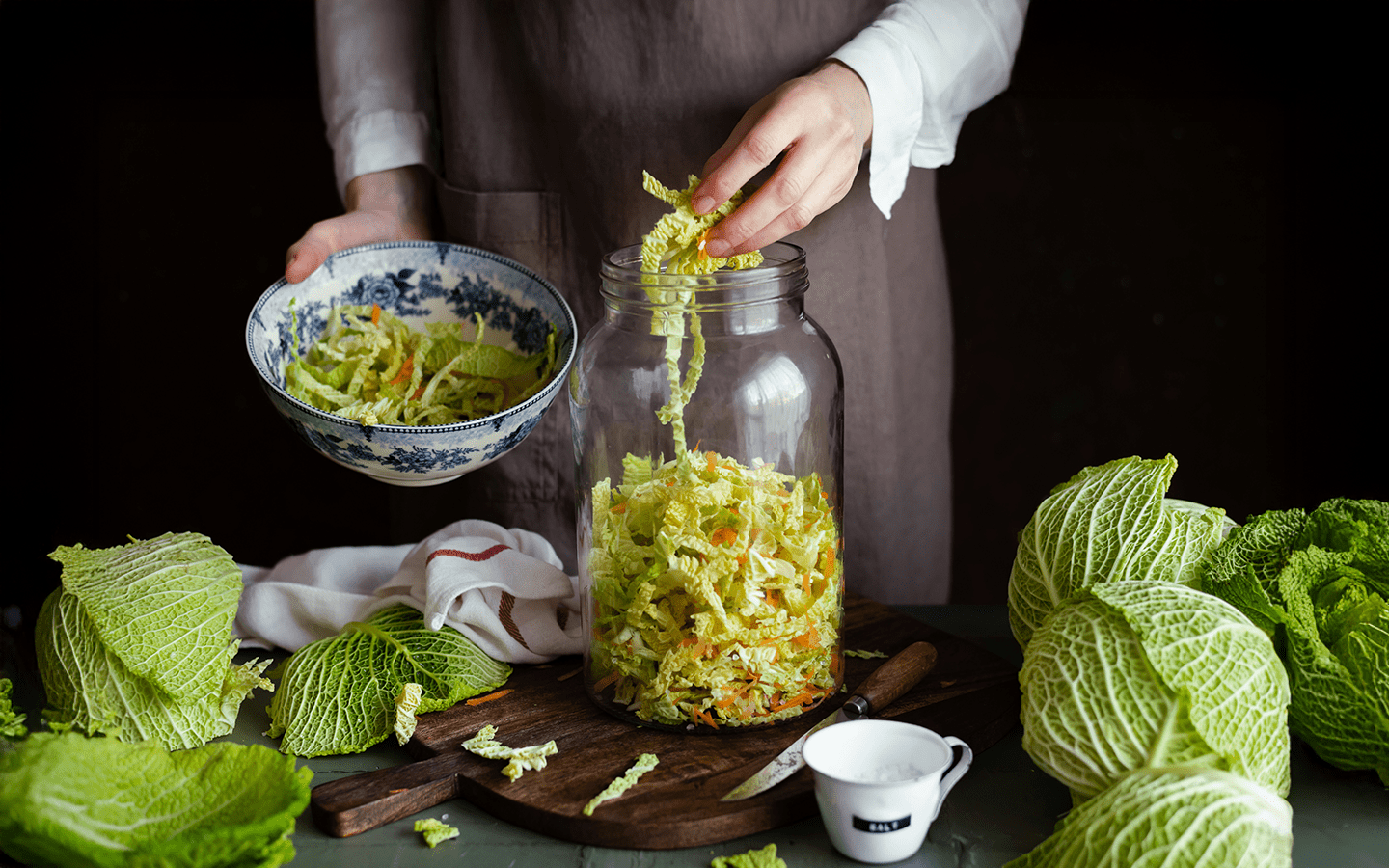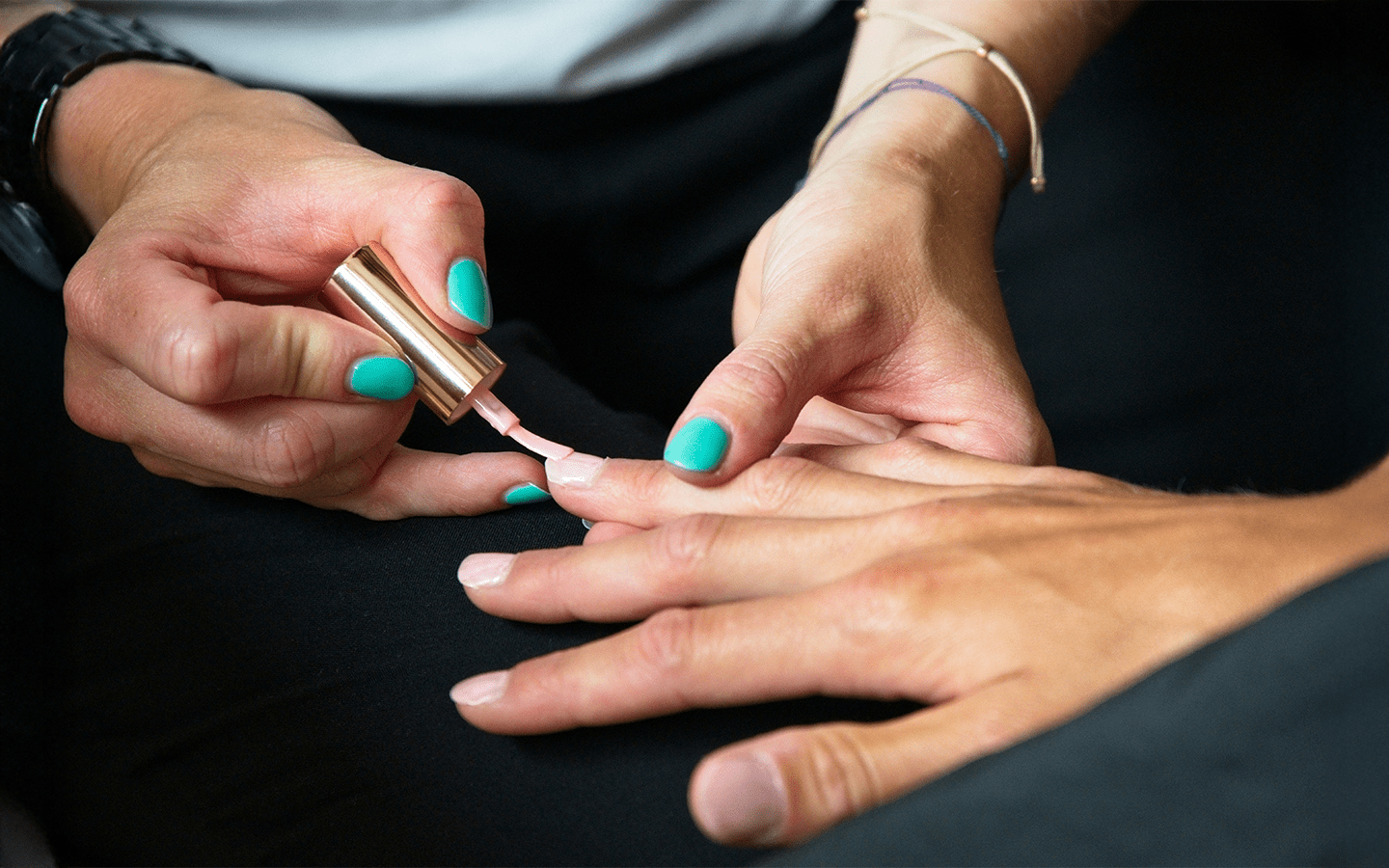
What the Hell Am I Supposed to Be Eating? A Guide for Midlife and Beyond
I'm Dr. Catherine, and if you're a woman in your 40s or 50s who's ever thrown up your hands and exclaimed, "What the hell am I supposed to be eating now?!", I hear you. In my 20+ years as a doctor of Acupuncture & Chinese Medicine, I've heard this plea from countless smart, accomplished women. The truth is, midlife changes everything – our hormones, metabolism, even our digestion – and the diet that carried us through our 20s might now be leading us into a blood-sugar crash or a 3 a.m. hot-flash wakeup call. As one menopause expert quipped, "Any mid-life woman knows that once you hit your 40s, 50s, or 60s, things will not go well if you eat the same way you did when you were 20". But figuring out what to eat (and how much) can feel super complicated.
Here's the good news: you can absolutely feel energetic, strong, and balanced again – by making some strategic tweaks to when and what you eat. This isn't a gimmicky fad diet. It's an evidence-backed, hormone-conscious way of nourishing yourself that I've honed with patients (and in my own life). It centers on whole foods – especially colorful vegetables, ample protein, and a big goodbye to excess sugar and refined carbs – all timed in sync with your body's natural circadian rhythm. It takes effort (I won't lie about that), but the payoff is so worth it. Let's dive in!
Midlife, Menopause, and Metabolism: Why Everything's Different Now
First, let's validate one thing: if you're gaining weight or feeling "off" despite eating "pretty healthy", it's not because you suddenly lost your willpower. Midlife hormonal shifts dramatically alter how our bodies respond to food. For one, as estrogen levels fluctuate and eventually decline, our metabolic rate slows down. In fact, women in their 50s may need about 200 fewer calories per day to maintain the same weight they had in their 30s. Diminishing estrogen also cues your body to redistribute fat towards the abdomen. Studies show the loss of estrogen in menopause is linked to increased belly fat, and even during perimenopause when estrogen is doing a wild rollercoaster, its relative dominance can spur weight gain around the middle. It's a double whammy: even as overall levels drop, the imbalance in hormones can cue your body to pad the midsection.
And then there's cortisol – the stress hormone that loves to rise as we age (peaking around age 50). High cortisol can trigger blood sugar swings and tells your body to store fat, especially in the belly. If you're dealing with chronic stress (and who isn't, juggling career, family, and maybe aging parents?), this can make it even harder to shed midlife pounds. Lack of sleep only pours fuel on the fire: persistent insomnia (hello, 3 a.m. mind-racing or night sweats) disrupts hunger hormones and metabolism. Research has noted that when we don't get enough sleep, we tend to snack more and crave sugary comfort foods – a perfect recipe for weight gain. It's no wonder midlife women often feel like their bodies have "betrayed" them.
Hormonal changes don't just affect the scale; they influence symptoms and overall health. For example, carrying extra weight can worsen hot flashes (those notorious bursts of heat). The encouraging flip side? Losing even a moderate amount of weight can reduce the frequency and intensity of hot flashes in overweight women. I've seen patients who thought they'd never wear a light-colored blouse again (for fear of sweat marks) experience real relief when they adopted a hormone-friendly eating plan and shed some fat.
So if you're feeling stuck, remember: it's not a personal failure, or your fault. It's biology. Your body is essentially under new management (hormones 2.0), and it needs a new strategy. Let's talk about it – what to eat to feel your best.
The Hormone-Balancing Plate: What to Eat Now
So, what the hell should you be eating in midlife? In a nutshell: lots of vegetables, ample protein, tons of fiber, some fruit- not too sweet, and little-to-no sugar or refined grains. This way of eating isn't about starvation or micromanaging – it's about nutrient density and stabilizing your blood sugar to work with your hormones, not against them. Here's how to build your hormone-happy plate:
- Pile On the Non-Starchy Veggies: Think leafy greens, broccoli and cauliflower, bell peppers, zucchini, Brussels sprouts – the more variety, the better. These are packed with vitamins and antioxidants, but just as important, they're loaded with fiber. Fiber is your midlife BFF: it keeps you feeling full, keeps your blood sugar steady, and feeds your gut's healthy bacteria (which play a role in everything from digestion to mood). Also the fiber helps you poop (of course) and excrete out old and tired hormones that are making you feel yucky. Cruciferous veggies (like broccoli, kale, cabbage) even contain compounds that support estrogen balance and detoxification. Dr. Sara Gottfried – a renowned hormone expert – notes that "healthy estrogen balance relies on optimal gut health," and women who skimp on fiber-rich veggies (while overdoing meat and cheese) can actually disrupt their estrogen metabolism. Translation: your veggies aren't just nice-to-have, they're part of keeping your hormones humming. Aim to fill at least half your plate with non-starchy veggies at most meals. If you're dealing with midlife bloating or new digestive issues, don't automatically blame the broccoli or beans and cut them out. Many perimenopausal women mistakenly think their diet is causing all the bloat, when in reality hormonal fluctuations, stress, and sleep disturbances are huge contributors. Rather than eliminate healthy foods across the board, focus on gradually increasing fiber and diversity in your diet. Oh, when you have a lot of fiber, you need a lot of water too, about half your body weight in ounces, so if you weigh 140 lbs strive for 70oz of water- more if you drink coffee and exercise too. Okay back to the basics- A diverse diet (lots of different plant foods) helps your gut microbiome thrive, which in turn can ease bloating and even improve mood and immunity. In short, dietary diversity is crucial for your gut and overall health. If you suspect certain foods truly don't agree with you, work with a professional – don't jump on a super restrictive diet unnecessarily. Balanced, colorful plates will serve you far better than the rabbit hole of endless food rules.
- Prioritize Protein – Seriously: If there's one magic macro for midlife, it's protein. Protein is the building block of muscle (which we start losing more rapidly in our 40s and 50s). More muscle = higher metabolism and better support for joints and bones. Plus, protein blunts hunger and keeps you satisfied, preventing those afternoon energy crashes that send you raiding the vending machine, or wherever you like to buy junk food. I encourage aiming for a significant protein source at every meal – whether that's eggs, Greek yogurt, fish, poultry, lean meat, or plant proteins like tofu, lentils, and beans. Many women I work with are surprised to learn they may need at least 20–30 grams of protein per meal in midlife to maintain muscle mass. If you find it tough to get that much from food alone, a clean protein shake (e.g. whey, pea, or collagen powder) can help – Dr. Alexandra Filingeri, a midlife nutrition expert, often advises her clients to use protein supplements if they can't meet their needs through diet (whey protein in a smoothie, for example, can be a convenient breakfast). Also, don't forget about seafood: it's high-quality protein and offers omega-3 fats which combat inflammation and support brain and heart health – important as our risk for heart disease climbs after menopause. Bottom line: protein is queen in your midlife diet. It will fuel your muscles, steady your blood sugar, and even help curb those "give me all the carbs" cravings that hit when hormones swing.
- Cut Back the Carbs (Especially Refined Ones): Here's the tough-love part – to feel and look your best, most women in midlife truly benefit from cutting way down on refined carbohydrates and sugars- that includes juices too. That means things like bread, pasta, pastries, white rice, chips, candy, sweetened drinks… all the stuff that tastes great but sends your blood sugar on a rollercoaster. You don't have to go zero-carb – in fact, please don't go extremes without guidance, because some healthy carbs (from veggies, fruits, and modest portions of starches) are important for fiber and micronutrients. But we do want to all but eliminate the junk carbs. Here's why: In midlife, our cells become more resistant to insulin (blame shifting hormones and years of life), so when we flood our system with sugar or refined grains, our body pumps out more and more insulin to try to manage the blood glucose spike. Elevated insulin signals the body to store fat, particularly in the abdomen. Over time, this can lead to a vicious cycle of insulin resistance. As Dr. Gottfried explains, if we don't manage our refined sugar intake, we end up with chronically high blood glucose and insulin resistance, which she calls "one of the biggest factors in weight loss resistance" for midlife women. In plain terms, too much sugar and high-GI carbs = belly fat that won't budge. By slashing added sugars and swapping refined grains for nutrient-dense alternatives, you'll likely notice your cravings diminish and your waistline starts feeling less bloated. Many of my patients are amazed that their constant 4 p.m. hunger magically improves once they drop the mid-morning muffin and add more protein and healthy fat to lunch. Instead of grain-based sides like pasta or bread, try alternatives: cauliflower "rice" or zucchini noodles, spaghetti squash, or simply extra sautéed veggies. If you do include grains, make them whole grains in small portions – for example, a half-cup of quinoa or oats – and see how your body responds. But added sugar is something to be close to ruthless about. The average American gets about 300 calories of added sugar daily (often from sugary drinks and desserts), which is a recipe for hormonal havoc in midlife. Reserve sweets for truly special occasions, and even then, see if you can satisfy your sweet tooth with a few dark chocolate-dipped strawberries instead of, say, a giant slice of cake. Your hormones will thank you.
- Embrace Healthy Fats (in Moderation): Fat is not the enemy – in fact, it's crucial for hormone production, brain function, and keeping you full. We're not doing a "low-fat diet" here (those 1990s-era low-fat muffin tops were loaded with sugar – remember SnackWell's? – and did us no favors). That said, fats are calorie-dense, so you don't need to go overboard. Focus on quality: olive oil on your salad or veggies, a quarter of an avocado in your smoothie or on your plate, a small handful of nuts or seeds as a snack, fatty fish like salmon, or some ground flax or chia seeds sprinkled on yogurt (bonus: they provide lignans which may aid estrogen balance). These fats help reduce inflammation and support heart health. If you've been afraid of fats, give yourself permission to enjoy them in reasonable amounts – they'll make your food more satisfying and delicious, which is important for staying the course. One caveat: watch out for saturated fat in excess – a fatty ribeye steak or buttery cream sauce is fine occasionally, but too much saturated fat (and especially combined with sugars or starch) can worsen insulin resistance. Keep it mostly lean proteins and plant-based fats, and you'll strike the right balance.
- Some Fruits Are Your Friends: Fruit contains natural sugars, so it often gets caught in the carb-reduction crossfire. I'm here to tell you: fruit is not the enemy – especially whole fruits (not juice) that come packaged with fiber and antioxidants. Berries, cherries, apples, pears, citrus – these are nutrient powerhouses and usually low-to-moderate on the glycemic index. Berries in particular (strawberries, blueberries, raspberries, blackberries) are superstar foods for midlife: they're loaded with polyphenols that support brain and heart health, and their natural sweetness can satisfy dessert cravings with minimal impact on blood sugar. I often recommend a cup of berries a day, maybe with a dollop of Greek yogurt or some nuts. That said, be mindful with super-sugary tropical fruits (like pineapple, mango) or dried fruits – they're not off-limits, but have them in smaller quantities. And always think whole fruit over fruit juice. Juice is basically a straight shot of sugar without the fiber to buffer it. A small apple with some almond butter is far gentler on your system (and more filling) than a glass of apple juice. So enjoy fruit, but within the context of your overall low-added-sugar plan.
Now, what might this actually look like on your plate day-to-day? Here's an example of a day of intentional, hormone-friendly eating:
- Breakfast: Veggie omelet (2–3 eggs or egg whites loaded with spinach, tomatoes, mushrooms) cooked in olive oil, with half an avocado on the side. Or plain greek yogurt with berries.
- Lunch: grilled chicken or tofu or salmon, with a side or two of veggies. Add a complex carb like a half-cup of quinoa or chickpeas if you want (or if you're about to exercise), and drizzle with olive oil, add sea salt and fresh lemon juice.
- Afternoon snack (if hungry): A couple a squares of dark chocolate or a small handful of nuts.
- Dinner: Protein of your choice with a generous serving of roasted broccoli and cauliflower (you can toss these in olive oil, turmeric, and pepper – so good). Aim to finish dinner on the early side (more on why in a moment). Later in the evening, if you're peckish, sip an herbal tea or enjoy a cup of warm almond milk with cinnamon.
This way of eating will nourish you deeply without the high-carb crash. It focuses on whole foods that talk to your hormones in the right way – keeping insulin low and steady, supporting estrogen detox, and providing the protein building blocks for muscle (and collagen for your skin, hair, and nails, by the way!). Many women also find that this diet, being low in sugar and processed foods, helps reduce inflammation, which can mean fewer joint aches and even a clearer mind.
Important: Don't confuse this with a trendy "keto" diet you might have read about. Yes, our approach is lower in carbs, but it is not a bacon-and-butter free-for-all. In fact, Dr. Gottfried tried a strict keto diet herself and found it backfired for many women, citing that classic keto (very high fat, very low carb) can mess with women's thyroids and stress hormones. Her protocol (and mine) is a modified low-carb approach that emphasizes fiber, vegetables, and adequate (not sky-high) protein – so you get the insulin benefits of carb control without throwing other hormones out of whack. The goal here is metabolic flexibility and nourishment, not carb deprivation for its own sake. If you fuel yourself with plentiful greens, lean proteins, and healthy fats, you will naturally crowd out the breads and sweets – and you won't feel hungry an hour after eating, which is often the case when a meal is mostly refined carbs.
One more thing: as you clean up your diet, you might notice your gut health improving too – less bloating, more regularity. Our gut microbiome (the trillions of bacteria in our digestive tract) plays a surprisingly big role in hormone balance. Those microbes help metabolize estrogen, influence our immune system, and even help produce neurotransmitters that affect mood. To keep your gut happy, continue to eat a variety of plants (each type of fiber feeds different good bugs). Fermented foods like yogurt, kefir, sauerkraut, kimchi, or kombucha can introduce beneficial bacteria, so include those if you enjoy them. If you suspect you have a specific gut issue (like IBS) flaring up in midlife, know that you're not alone – about half of women may experience some form of gut-brain interaction disorder around this time. Sometimes a temporary protocol (like a short-term low-FODMAP diet) under guidance can help, but it's meant to be temporary while healing. Ultimately, you want to expand your diet again for the sake of your gut and sanity. Remember, overly strict diets can actually heighten your gut's sensitivity and make things worse. So think addition (of good foods) more than subtraction, wherever possible.
Timing Is Everything: Eat with Your Circadian Rhythm
Beyond what you eat, let's talk about when you eat. Our bodies operate on a 24-hour circadian clock that affects our hormones, metabolism, and how we process food. There's a growing body of research – and centuries of wisdom from traditional medicine – suggesting that eating in sync with your body's clock can profoundly improve your metabolism and hormone balance. What does that mean? In practical terms: front-load your calories earlier in the day and keep evenings light.
In Traditional Chinese Medicine, we've long said that your "digestive fire" is strongest in the morning and midday, and tapers off at night. Ever notice how you can get away with a big lunch, but a big dinner might sit like a brick in your stomach? There's truth to that. Modern science now echoes this concept. Studies show that people who consume a large portion of their calories late in the evening tend to have higher rates of weight gain, insulin resistance, and metabolic issues, whereas those who eat more of their calories earlier in the day have an easier time managing weight and blood sugar. One study of women found that those eating at least one-third of their daily calories in the evening had a significantly higher risk of being overweight or obese, while women who concentrated their intake towards earlier hours (particularly around lunch) had a lower risk. It makes sense: at night, our bodies naturally expend less energy, and our insulin sensitivity drops – meaning a bowl of ice cream at midnight causes a much bigger blood sugar spike than the same treat would at noon. In fact, eating the same meal in the evening versus the morning can result in higher blood sugar and fat-storage in the evening, simply because of our circadian hormonal environment. Late-night eating has also been linked to impaired glucose tolerance and even poorer sleep quality.
So, how do we leverage this knowledge? Align your eating schedule with the sun. For most, this means: have a solid breakfast, a good lunch, and then dinner on the lighter side, wrapping up meals a few hours before bedtime. If possible, try to eat dinner earlier in the evening (6-7 pm instead of 9-10 pm). Give your body at least 12 hours overnight with no food – that's a form of gentle intermittent fasting that can improve insulin sensitivity, gut repair, and even sleep. For example, if you finish dinner by 7 pm, don't eat breakfast until at least 7 am the next day. Some women thrive with a slightly longer fasting window (14 or 16 hours overnight), but you don't have to force an extreme schedule. The key is consistency: a regular eating window that your body can predict.
I'll share what works for me: I have breakfast around 8 am, lunch by 1 pm, and I aim to finish dinner by 7 pm. If I need a snack, I'll have it in the afternoon. After dinner, the kitchen is closed. I might have herbal tea or water, but no caloric foods. It was an adjustment at first (especially if you're used to nighttime nibbling), but I quickly noticed I slept better and woke up hungrier for breakfast – a good sign that my metabolism was gearing up in the daytime. If late-night snacking is a habit for you, here's a tip: try brushing your teeth after dinner. It's a psychological cue that mealtime is over (and let's be honest, nothing tastes great with toothpaste flavor anyway!).
To be clear, you don't need to eat breakfast at 6 am if you're not a morning person. It's fine to start your eating window a bit later and end later – just keep it earlier than your sleep time. For instance, if you wake up at 7 and prefer brunch at 10 am, then aim to have your last meal by 8 pm. Find a rhythm that suits your life but still honors that general "daylight eating" principle. And on the occasions where you have a late dinner out (life happens, and it should!), don't stress – just get back to your pattern the next day.
This circadian-aligned eating isn't just about weight; women report it helps with issues like acid reflux (which often flares at night if you eat too late), better energy in the mornings, and yes, even hormonal symptoms. Stable blood sugar from well-timed meals can mean fewer mood swings and less intense hot flashes for some. It's one of those low-hanging fruits of lifestyle change that can yield surprisingly broad benefits.
Lifestyle Habits to Support Your Hormones (Beyond the Plate)
While nutrition is the cornerstone, a few other lifestyle factors will amplify your results and help you feel truly balanced:
- Prioritize Sleep: We've touched on sleep, but it really is non-negotiable for midlife wellness. Quality sleep (7-8 hours for most people) helps regulate hunger hormones (ghrelin and leptin) and cortisol. When you're well-rested, your body is less likely to send you false hunger signals or store fat out of stress. Conversely, chronic sleep deprivation can literally make you hungrier and prone to choosing sugary foods for quick energy. If hot flashes or night sweats are interrupting your rest, talk to your healthcare provider – sometimes treating those (with lifestyle or medication) will dramatically improve your sleep. And remember our note above: finish eating at least 2-3 hours before bed. A full belly at bedtime is a recipe for poor sleep because your body is busy digesting when it should be deep into repair mode. Create a calming pre-sleep routine: dim lights, maybe a magnesium glycinate supplement or a warm bath, and no doom-scrolling on your phone at midnight. Protecting your sleep is one of the most perimenopausal and menopausal power moves you can make.
- Manage Stress (Find Your Calm): We can't eliminate stress – but we can change how we respond to it. Midlife often comes with a heaping dose of stress (career pivots, college tuitions, caregiving, you name it), and that chronic stress jacks up cortisol, which as we discussed encourages belly fat and messes with blood sugar. Finding ways to regularly de-stress is key. This might be meditation, yoga, tai chi, journaling, walks in nature, prayer – whatever helps you dial down the mental chatter and feel present. As a Chinese Medicine doctor, I'm a big fan of acupuncture for stress relief; many of my patients not only feel calmer but also notice improvements in sleep and even digestion after a few sessions. It's all connected! Even simple practices like deep breathing – try inhaling for 4 counts, exhaling for 6 counts, for a few minutes – can shift you into a parasympathetic (rest-and-digest) state. Not only will stress management help reduce emotional eating ("I deserve this wine/cookie because today was hard" – sound familiar?), it will directly benefit your hormone balance. Less cortisol = happier metabolism and steadier estrogen/progesterone balance. Think of stress reduction not as a luxury, but as part of your health leadership strategy. You are effectively the CEO of your body, and even CEOs need their downtime to function at peak performance.
- Build Strength & Move Your Body: The hormonal diet we've discussed will do a lot of heavy lifting (no pun intended) for weight management and energy, but adding physical activity clinches the deal. Particularly strength training or resistance exercise is a game-changer in midlife. It helps rebuild the muscle that we lose with age and signals to your body, "Hey, we need to be strong and burn fuel." Muscle is metabolically active tissue – the more you have, the more calories you burn just at rest, and the better your insulin works. Aim to do some form of strength or resistance exercise at least 2-3 times a week. This could be weight lifting, bodyweight exercises, Pilates, or yoga (which can surprisingly build strength, especially power yoga or holding those warrior poses!). If you're new to it, consider a session with a trainer to learn form, or start with beginner-friendly online workouts. In addition to strength work, incorporate cardio that you enjoy – brisk walking, cycling, dancing, swimming, hiking, anything that gets your heart rate up. Cardio is great for heart health, stress reduction, and burning some extra calories, but don't overdo long intense cardio (chronic marathon running without adequate recovery can actually stress the body). A mix of aerobic exercise and some high-intensity intervals once or twice a week (if you're up for it) can boost growth hormone and help with fat loss. Importantly, moving your body regularly also improves insulin sensitivity – meaning your cells are better at using blood sugar so there's less left to store as fat. And let's not forget, exercise – especially outdoors or with a friend – can bring joy. It reminds us we are alive, capable, and so much more than the sum of our hot flashes or wrinkles.
- Stay Hydrated: Don't underestimate the power of good old H2O. Drinking enough water (aim for roughly 2 liters a day, more if you're active) helps with metabolism and can prevent mistaking thirst for hunger. Sometimes afternoon fatigue is as much about dehydration as anything. Herbal teas and sparkling water count, too. Just go easy on caffeine and alcohol – both can disrupt sleep and dehydrate you. Which brings me to…
- Alcohol in Moderation: I enjoy a nice glass of red as much as the next woman, but midlife is a time to be mindful about alcohol. It not only adds excess sugar (and calories) that can stall weight loss, but it also interferes with sleep architecture (ever notice how wine knocks you out at first, but then you wake up at 3 a.m.?). Alcohol can also worsen hot flashes and mood swings in some women. I'm not saying you can't ever enjoy a drink – just be strategic. Limit to one drink on occasion, and try to have it earlier in the evening with food, so it impacts you less. And for many of us, cutting down on alcohol (or cutting it out for a month as an experiment) yields big improvements in how we feel come morning.
- Listen to Your Body's Feedback: Finally, remember that you are unique. Use the above guidelines as a framework, but pay attention to your body. Maybe dairy makes you feel bloated or you notice you feel more energetic on a fully grain-free diet versus having that quinoa – adjust accordingly. You are running a smart self-experiment in finding your ideal nourishment. The beauty of midlife is that our bodies are honest; they'll tell us quickly when something isn't working. Become a compassionate investigator of your own health. Maybe keep a journal of what you eat and how you feel (energy, mood, hot flashes, sleep quality) – patterns will emerge. This is about your optimal diet, not just some plan I decreed. As Dr. Jenn Salib Huber (a menopause nutritionist) emphasizes, midlife nutrition should not be about rigid rules or one-size-fits-all mandates – in fact, imposing strict food rules can backfire by increasing stress and even gut sensitivity. Instead, approach this as building a sustainable pattern that supports you. You're in the driver's seat, and you can fine-tune the journey as you go.
You're in Charge: Claiming Your Midlife Health (It's Worth It!)
I want to acknowledge that making these changes – eating more intentionally, cutting out long-cherished comfort foods, planning meals around protein and veggies – takes effort. In our go-go lives, it's a lot easier to grab takeout or finish the kids' mac and cheese than to cook a separate, balanced meal for yourself. It might mean batch-cooking on Sundays, saying no to the office doughnuts, or navigating family pizza night with your own grain-free alternative. In the beginning, it might feel like a part-time job just figuring out what to buy and eat. But hear me on this: you are worth it. Feeling good is worth it. Your hormonal harmony, your mood stability, your ability to lead and love and laugh without that foggy, hangry cloud over you – that is worth every ounce of effort. And once you get into the groove, it won't feel like a burden at all; it will feel empowering.
Remember, you are not just any woman – you're a smart, resilient, take-charge woman who has conquered many challenges in life. This midlife nutrition thing? You've got this. Think of it as leading your own wellbeing initiative: you are the CEO and chief architect of your health. I'm just here as an expert guide on the side, sharing what's worked for many others. Take pride in the fact that you're choosing to fuel yourself with love and intention. Plenty of people drift along on autopilot, complaining about how they feel. Not you. You're reading this, educating yourself, ready to make changes that serve you. That's huge.
And let's not forget joy in all of this. Eating well is not punishment – it's a form of self-respect. Find recipes that excite you. Season your food generously (herbs and spices are fabulous for flavor and metabolism). Savor your meals rather than choking down a microwaved diet entree in front of the TV. Maybe create a beautiful atmosphere at your dining table, even if you're eating alone – light a candle, play soft music, make it an experience. These things matter because they reinforce that you are worthy of care and pleasure.
Celebrate every victory, no matter how small. Did you swap your sugary cereal for Greek yogurt and berries this week? Fantastic! Notice how your energy felt. Managed to stick to water instead of that second glass of wine? Your liver thanks you. Prepped veggies in advance so you wouldn't be at the mercy of drive-thru hunger? High-five! Each of these actions is you taking the reins.
There will be days you eat a croissant for breakfast or dive into the ice cream pint at 10 pm. It's okay. Truly. No midlife woman's journey (or any woman's) is perfect. What matters is the trendline and that you lovingly guide yourself back to the nourishing path more often than not. Over time, these choices become second nature and the old cravings lose their grip. Even better, you'll start to actually prefer how you feel eating this way – clear-headed, less achy, more you. One of my clients in menopause said after three months on this approach, "I feel like someone turned the lights back on in my body." She had more energy at 55 than she remembered having at 35. That is the power of aligning what you eat with what your body truly needs.
In Closing: Your Midlife Can Be Thriving – and You Hold the Key
What you choose to put on your plate is one of the most powerful tools you have to influence your health destiny. Food is information for your hormones. By eating a vegetable-forward, high-protein, low-sugar diet tailored for midlife and by honoring your body's natural rhythms, you are essentially telling your hormones: *"
In Closing: Your Midlife Can Be Thriving – and You Hold the Key
What you choose to put on your plate is one of the most powerful tools you have to influence your health destiny. Food is information for your hormones. By eating a vegetable-forward, high-protein, low-sugar diet tailored for midlife and by honoring your body's natural rhythms, you are essentially telling your hormones: "I've got this – we're going to work together now." And when your hormones are in sync, watch out world – because you're going to feel balanced, strong, and unstoppable.
So the next time you hear conflicting advice or feel that pang of frustration about what to eat, come back to basics: vegetables, protein, good fats, minimal sugar, mindful meal timing. Come back to you – your inner compass and your hard-earned wisdom. You've led companies, projects, families – now you're leading your own wellness journey. And as you do, you're not just improving your life; you're quietly inspiring the women around you (friends, daughters, colleagues) by showing what thriving in midlife can look like.
You're the heroine of this story. And trust me, this heroine is well-fed, well-fueled, and ready to flaunt how fabulous healthy midlife can be. Here's to balancing those hormones and feeling your absolute best – you deserve nothing less!
(Empowered by veggies and vim, Dr. Catherine)
References:
- Streicher, Lauren. Mid-life Nutrition: Tips and Tricks From a Dietician. Dr. Streicher's Inside Information podcast, episode 178. "Any mid-life woman knows that once you hit your 40s, 50s, or 60s, things will not go well if you eat the same way you did when you were 20…"
- Mayo Clinic Staff. The reality of menopause weight gain. Mayo Clinic, 2022. (Women in their 50s may need ~200 fewer daily calories than in their 30s to maintain weight)
- Gottfried, Sara MD. Women, Food, and Hormones. (Loss of estrogen in menopause linked to increased abdominal fat; high cortisol in midlife triggers blood sugar issues and belly fat; insulin resistance from excess sugar drives weight gain)
- MGH Center for Women's Mental Health. Weight Loss Helps to Reduce Hot Flashes. July 10, 2014. (Behavioral weight loss program reduced frequency/severity of hot flashes in overweight peri/menopausal women)
- The Menopause Nutritionist (Jenn Salib Huber, RD ND). Gut Health & Hormones in Midlife: What You Need to Know. 2023. (Perimenopausal digestive symptoms are often due to hormones, stress, and sleep changes – not just diet; overly strict food rules can heighten sensitivity, whereas balanced, diverse diets support a healthier gut)
- Lesani, Azadeh et al. Circadian and temporal eating patterns in relation to metabolic syndrome in Iranian women. Scientific Reports, 2025. (Higher evening energy intake correlates with increased metabolic syndrome risk and higher fasting glucose; those consuming more calories earlier in the day had lower obesity risk. Late-night eating impairs glucose tolerance and disrupts circadian metabolism)
- Gottfried, Sara MD. Why Keto Doesn't Work for All Women – Modified Keto for Women's Hormones. 2021. (Women need a modified low-carb approach with plenty of fiber and vegetables; "lazy keto" low-veg diets can disrupt estrogen balance and thyroid function)
- Streicher, Lauren & Filingeri, Alexandra PhD, RDN. Inside Information Podcast, Jun 26 2025. (Midlife nutrition tips: emphasize protein, manage glycemic index; sugar contributes to belly fat; consider protein supplements if needed; adjust portions to individual energy needs)













